-
 +40 +1
+40 +1Womb transplants are now a life-changing reality. Here’s how the extraordinary procedure works
The procedure may help the 1 in 500 women worldwide who have an infertility condition to conceive.
-
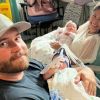 +3 +2
+3 +2Going home: Conjoined twins released from Texas Children’s Hospital after successfully separated in complex surgery
Conjoined twins are finally going home after the pair was safely separated during a complex surgery at Texas Children’s Hospital in June.
-
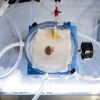 +36 +2
+36 +2Scientists successfully unfroze rat organs and transplanted them — a ‘historic’ step that could someday transform transplant medicine
In an ‘historic’ first, scientists freeze, thaw, and transplant rat organs — bringing transplant medicine one step closer to sci-fi dreams of stopping biological time.
-
 +4 +1
+4 +1US doctors forced to ration as cancer drug shortages hit nationwide
Toni Dezomits, a 55-year-old retired law enforcement officer, is fighting a recurrence of her stage 4 ovarian cancer. She had already undergone several rounds of chemotherapy when her doctor told her she had some more bad news. Just a day before her third round of treatment last month, Ms Dezomits was told there was a nationwide shortage of the generic chemotherapy drug, carboplatin - one of three medications she was meant to receive.
-
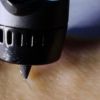 +16 +2
+16 +2High-tech pen paints healing gel right into wounds
Most wound dressings simply cover the injury and perhaps also kill harmful bacteria. The PAINT system goes much further, as it incorporates a pen that could one day allow doctors to paint a gelatinous healing ink right into wounds. Its name an acronym for "portable bioactive ink for tissue healing," the PAINT technology is being developed by scientists from China's Nanjing University.
-
 +23 +1
+23 +1India: Doctor plans womb transplant for trans woman to carry children
A doctor in India is planning to transplant a womb into a transgender woman, possibly enabling her to carry children, a report says. New Delhi-based surgeon Dr Narendra Kaushik plans to perform the surgery at his clinic using a donated organ from a living or dead donor, according to The Mirror. "Every transgender woman wants to be as female as possible," Kaushik told the paper.
-
 +4 +1
+4 +1Moderna says it hopes to offer new vaccines for cancer, heart disease, and other conditions by 2030
Moderna's chief medical officer said advancements in mRNA technology since the outset of the Covid pandemic have ushered in a golden age for new vaccines.
-
 +17 +1
+17 +1First-of-its-kind mRNA treatment could wipe out a peanut allergy
Peanut and tree nut allergies affect around three million Americans, yet there’s only one approved treatment and it only tackles its severity. And despite the amount of research behind finding a way to counter, or cure, this often deadly condition, there's been only glimmers of hope for sufferers.
-
 +20 +1
+20 +1Hope for humans as scientists restore erections in injured pig penises
Scientists have made a promising step forward in repairing penis injuries in humans - by repairing injuries and restoring erectile function in pigs. In a study published in the journal Matter, the researchers showed how an artificial sheet of tissue, which mimics the characteristics of real penile tissue, can be used to repair the reproductive organ.
-
 +26 +1
+26 +1Here’s What’s Next for Pig Organ Transplants
THE NIGHT BEFORE the transplant, surgeon Bartley Griffith didn’t sleep well. When he awoke around 3 am and went to make a cup of coffee, he forgot to put his mug below the machine and ended up with coffee all over the floor. But when he arrived in the operating room on the morning of January 7, the very unusual operation he was about to perform became just like any other heart transplant. The only difference was the organ donor was a pig. The recipient: a 57-year-old man with a failing heart.
-
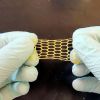 +13 +1
+13 +1Sticky plaster for punctured lungs stretches as they expand
A sticky gel plaster containing the yellow pigment in turmeric can patch up punctured lungs in rats. It also seems to help wounds heal when loaded up with sacs of biological molecules. Biodegradable gel patches often need to be glued to the body parts they are intended to help repair and can struggle to follow the movement of organs like lungs as they inflate and deflate.
-
 +3 +1
+3 +1New type of surgical robot used to remove throat tumour
A surgical team has used a new type of robot to remove a cancerous tumour from a patient's throat. Gloucestershire Royal Hospital surgeons Simon Higgs and Steve Hornby employed the Versius robot to remove a tumour from Martin Nugent's oesophagus.
-
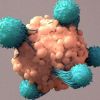 +24 +1
+24 +1New CRISPR cancer treatment tested in humans for first time
Past studies have used the gene-editing technology CRISPR to remove genes from immune system cells to make them better at fighting cancer. Now, PACT Pharma and UCLA have used CRISPR to remove and add genes to these cells to help them recognize a patient’s specific tumor cells.
-
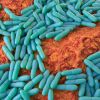 +24 +1
+24 +1Leprosy bacteria may have ability to regenerate livers and replace need for transplants
Researchers infected 57 armadillos with the parasite and found they developed enlarged, yet healthy and unharmed, livers with the same vital components as those that were uninfected.
-
 +21 +1
+21 +1Tiny magnets for specialized medical procedures
Making specialized medical procedures possible anywhere in the world – that is what Christoff Heunis wants to accomplish with his start-up Flux Robotics. During his doctoral research, he developed a system that allows surgeons to place a cardiac catheter with the help of magnets. Next week, the company will take part in the international start-up event Slush in Helsinki.
-
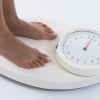 +22 +1
+22 +1Teens with obesity lose 15% of body weight in trial of repurposed diabetes drug
The drug could be a useful new tool for treating childhood obesity.
-
 +22 +1
+22 +1Scientists Say They Can Damage Memories of Being Cheated On
We're going on 20 years since "Eternal Sunshine of the Spotless Mind" devastated film lovers — and now, it seems like something approaching the memory-erasing science it depicted may be close to fruition. New research published in the Journal of Affective Disorders describes how the researchers instructed test subjects to recall traumatic memories of "romantic betrayal" under the influence of the beta-blocker propranolol, which is typically prescribed for high blood pressure, migraines, and anxiety disorders.
-
 +18 +1
+18 +1MIT engineers develop sensors for face masks that help gauge fit
Wearing a mask can help prevent the spread of viruses such as SARS-CoV-2, but a mask’s effectiveness depends on how well it fits. Currently, there are no simple ways to measure the fit of a mask, but a new sensor developed at MIT could make it much easier to ensure a good fit. The sensor, which measures physical contact between the mask and the wearer’s face, can be applied to any kind of mask.
-
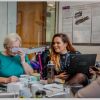 +19 +1
+19 +1Parkinson’s breakthrough can diagnose disease from skin swabs in 3 minutes
A new method to detect Parkinson’s disease has been determined by analysing sebum with mass spectrometry. The study, published today in the Journal of the American Chemical Society, have found that there are lipids of high molecular weight that are substantially more active in people suffering from Parkinson’s disease.
-
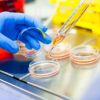 +3 +1
+3 +1Researchers discover dozens of genetic defects important for immune defence - relevant for patients with rare diseases
Researchers from the Institute of Biotechnology, University of Helsinki, pioneers in identifying the first patient mutations on the NFkB1-gene, cooperated with international clinicians to identify and characterise a plethora of unreported NFKB1 variants on patients with immune system related illnesses.
Submit a link
Start a discussion




















